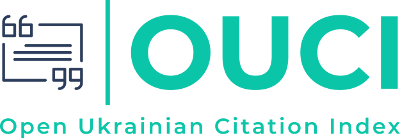THE USE OF NEURAL NETWORK TECHNOLOGIES TO SOLVE THE PROBLEM OF CLASSIFICATION OF ROLLED METAL DEFECTS
DOI:
https://doi.org/10.34185/1991-7848.2023.01.08Keywords:
Neural network, software system, classification, defect, rolled metal, augmentation, API, web interface, REST, MobileNet, InceptionV3, Python, Django web/rest framework, JavaScript, Bootstrap, dataset, dataset.Abstract
The main goal of the work is to create a software system that performs the classification of rolled metal surface defects with high accuracy (over 90%) and high speed (no more than 1 second per 1 image) through the use of artificial neural networks. To achieve the goal, it is necessary to perform the following tasks: 1) perform a study of the subject industry, determine the possibility of using neural networks to solve the problem of classifying rolled metal defects; 2) build a neural network model suitable for solving the problem of classifying visible defects in rolled metal products; 3) generate training, test and validation samples based on the database of hot rolled metal surface defects provided by Northeastern University (NEU); perform augmentation of the generated samples; 4) design and implement a defect classification system; 5) conduct testing and computational experiments. As a result of the work, a software system was developed for the classification of rolled metal defects based on neural network technologies, which is capable of classifying a defect in an image with an accuracy of at least 90% in less than 1 s of time.
References
Alkapov R.R. Automatic Visible Defect Detection and Classification System Prototype Development for Iron-and-Steel Works. / Alkapov R.R., Konyshev A.A., Vetoshkin N.A., Valkevich N.V., Kostenetskiy P.S. // 2018 Global Smart Industry Conference (GloSIC). Chelyabinsk, November 13-15, 2018, IEEE, 2018. – P. 1-8.
Baindorf I. Optimizatsiya protsessa i kachestva korrozionnostoykoy polosy na osnove sistemy kontrolya poverhnostey. / Baindorf I., Anstots T., Eberle А., Ernenpuch L., Holzhauser J. // Chernye Mettalli, 2005. – Vol. 3. – P. 45-56.
Caleb P., Steuer M. Classification of surface defects on hot rolled steel using adaptive learning methods. // Proceedings of the Fourth International Conference on Knowledge-Based Intelligent Engineering Systems and Allied Technologies, August 2000, Brighton, UK. IEEE, 2002. – Vol. 1. – P. 103–108.
Guifang W. Design of online surface inspection system of hot rolled strips. / Guifang W., Kwak H., Jang S., Xu K., Xu J. // 2008 IEEE International Conference on Automation and Logistics, 2008. – P. 2291-2295.
Lemon S. Avtomaticheskiy osmotr poverhnosty polosy dlya obespecheniya sploshnogo kontrolya kachestva v linii. // Chernye Mettalli, 2003. – Vol. 4. – P. 49-54.
Mazur I. Quality Control system for a hot-rolled metal surface // Frattura ed Integrità Strutturale, 2016. – Vol. 10. – No. 37. – P. 287-296.
Neogi N., Mohanta D., Dutta P. Review of vision-based steel surface inspection systems. // EURASIP Jourmal on Image and Video Processing, 2014. – Vol. 2014. – No. 1. – P. 1-50.
Popat M., Barai S. Defect detection and classification using machine learning classifier. // Proceeding of the 16th WCNDT 2004 - World Conference on NDT, 2004. – P. 788-797.
Stolzenberg M. Sistemy osmotra poverhnosty listovoy staly: Rezultaty issledovaniy. / Stolzenberg M., Gruber K., Henkenmayer H., Joncourt K. // Chernye Metalli, 2002. – Vol. 12. – P. 40-48.
Vetoshkin N., Valkevich N., Kostenetskiy P. Razrabotka polzovatelskogo interfeysa dlya sistemy avtomaticheskogo kontrolya kachestva poverhnosty listovoy staly s pokrytiem. // Parallel Computational Technologies (PCT’2018), 2018. – P. 400-402.
TensorBoard: Visualizing Learning [Electronic resource]
URL: https://www.tensorflow.org/guide/summaries_and_tensorboard
Downloads
Published
Issue
Section
License
Copyright (c) 2024 Modern Problems of Metallurgy

This work is licensed under a Creative Commons Attribution 4.0 International License.












